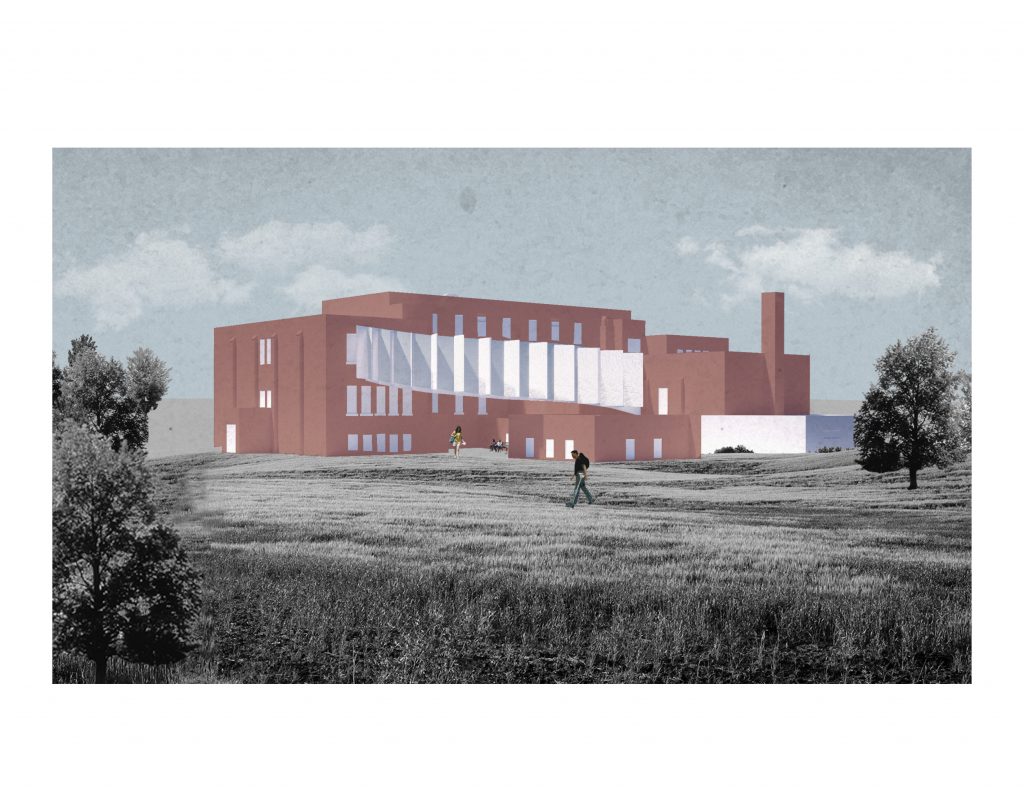Student Presents Residential School Project at Heritage Saskatchewan Symposium
October 21, 2021
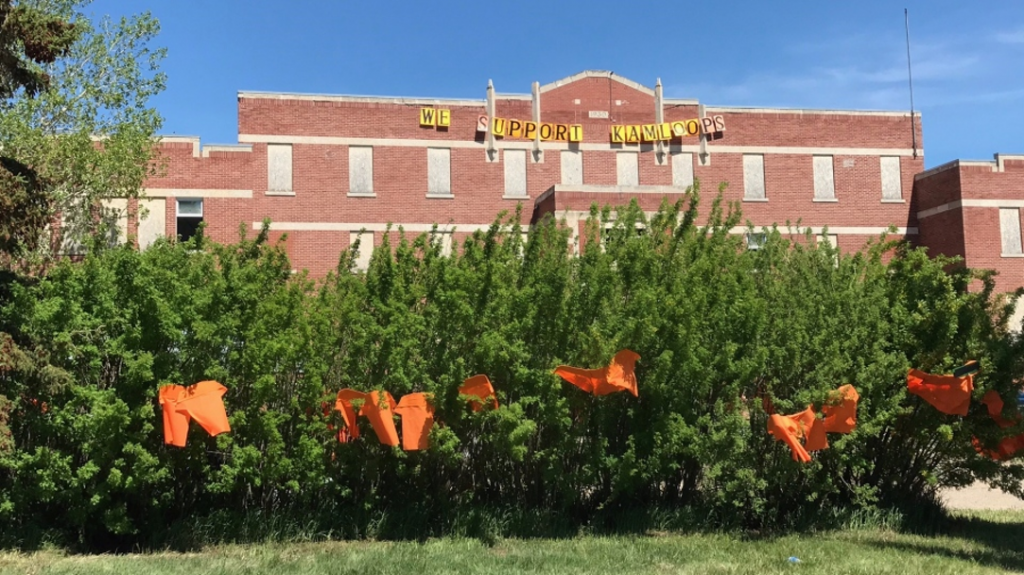
A symposium next month by Heritage Saskatchewan on the theme of reconciliation will feature a presentation by first-year Master of Architecture student Lauren Liebe.
Liebe will present a collaborative project between the Muskowekwan First Nation and the 2019 third-year conservation studio, in which she took part. The studio produced nine design concepts to transform the former residential school at Muskowekwan First Nation into a training centre, museum, archive, and memorial.
It is the last intact former residential school in Saskatchewan and has since become a National Historic Site.
“I am extremely grateful to have the opportunity to discuss this work,” says Liebe, 23. “I want to do the best I can to help Muskowekwan First Nation move forward with their vision for the site. The project and the site have evolved so much in the last few years, and I am honoured to help share the story so that conversations like these can continue.”
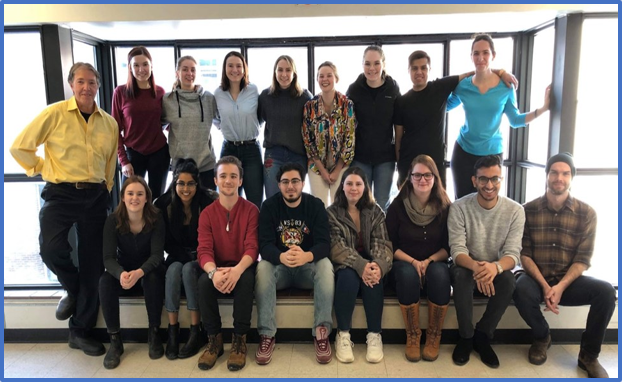
Front Row – Lauren Liebe, Khadija Waheed, Spencer Lapko, Hassan Hannawi, Vanessa De Alexandris, Hope Good, Arkoun Merchant, Patrick Bustin | Back Row – Kseniia Beliaeva ,Claire Bodrug, Merissa Lompart, Carlee Wale, Teagan Hyndman, Kaleigh Mackay, Panchi Galvan, Danica Mitric
The faculty involved in the project were Prof. Stephen Fai and Adj. Profs Jim Mountain and Lyette Fortin. The students were: Lauren Liebe, Khadija Waheed, Spencer Lapko, Hassan Hannawi, Vanessa De Alexandris, Hope Good, Arkoun Merchant, Patrick Bustin, Kseniia Beliaeva, Claire Bodrug, Merissa Lompart, Carlee Wale, Teagan Hyndman, Kaleigh Mackay, Panchi Galvan, and Danica Mitric.
“The studio group as a whole has kept connected with this project since then in support of their vision,” says Liebe.
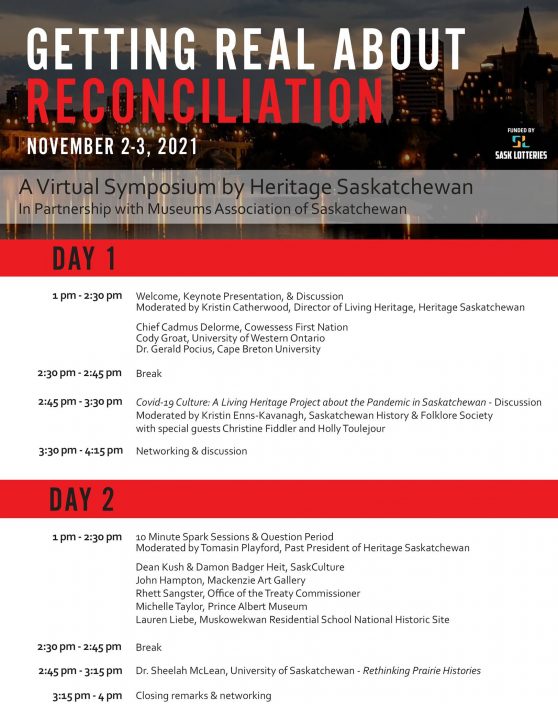
In partnership with the Museums Association of Saskatchewan, Heritage Saskatchewan will hold its virtual symposium, Getting Real About Reconciliation, on November 2-3. The keynote speakers are Chief Cadmus Delorme, Cowess First Nation, Assistant Professor Cody Groat, University of Western Ontario, and Dr. Gerald Pocius, Cape Breton University.
Liebe will deliver one of five 10-minute “Spark Sessions” about reconciliation work in action across Saskatchewan on November 3.
“My goal in the presentation is to call attention to the importance of the site’s history,” says Liebe.
“Through research, creativity, and being guided by elders and community members of this First Nation, our studio could design concepts for the site that gave positive hope and healing benefits to this community, and survivors of this institution where a legacy of trauma has impacted generations of Indigenous people in that region,” she says.
Liebe received approval from the Muskowekwan First Nation to talk about the project.
“I want to discuss how we relearned what it means to practice architectural conservation in Canada as it is typically rooted in respecting the original design intent of a building,” she says.
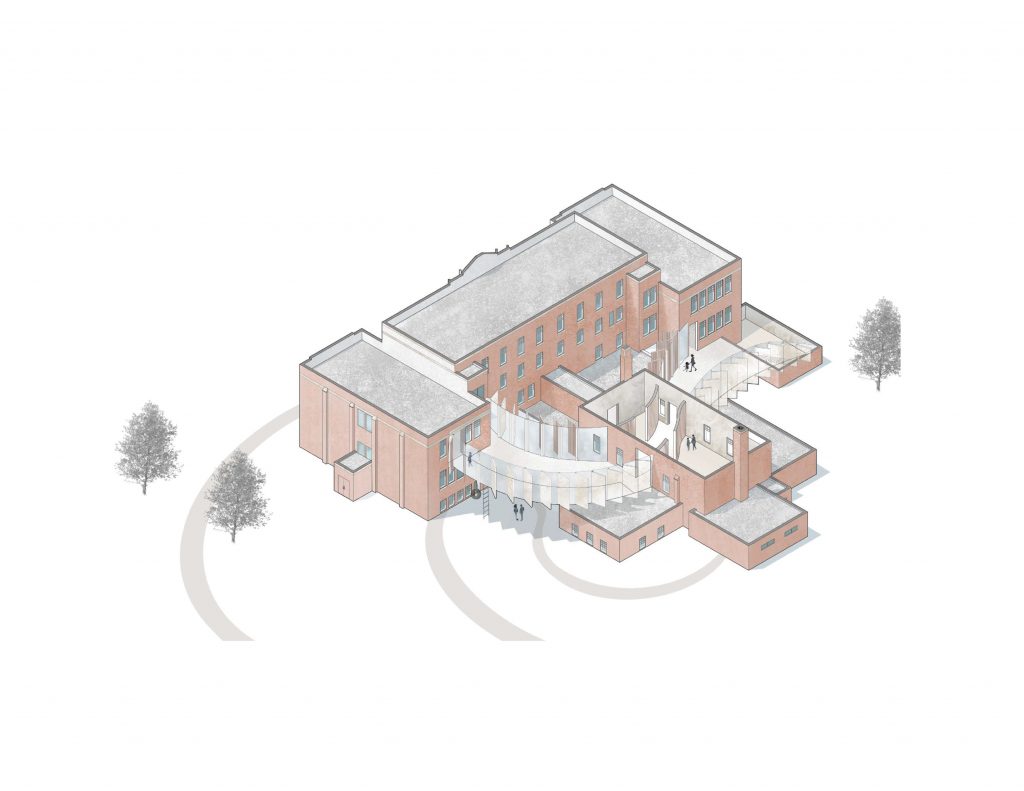
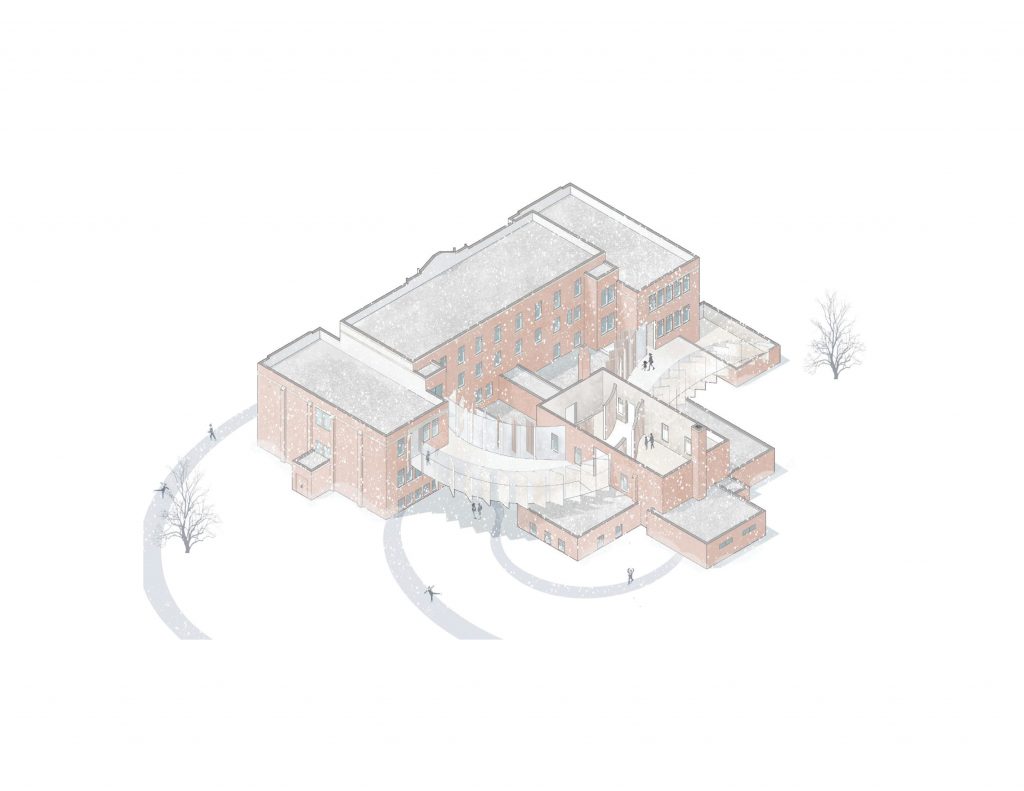
“This studio re-evaluates these principals and places priority on respecting and listening to the Muskowekwan community and acknowledging the devastating history of the residential school.”
As a representative of the studio team, Liebe had presented their drawings to the Muskowekwan First Nation in June 2019.
Subsequent presentations of the studio’s work have included the Carleton Heritage Symposium in May 2021, National Capital Commission and Public Works Canada (Parliamentary Precinct) in August 2021, and the National Trust for Canada conference in October 2021.
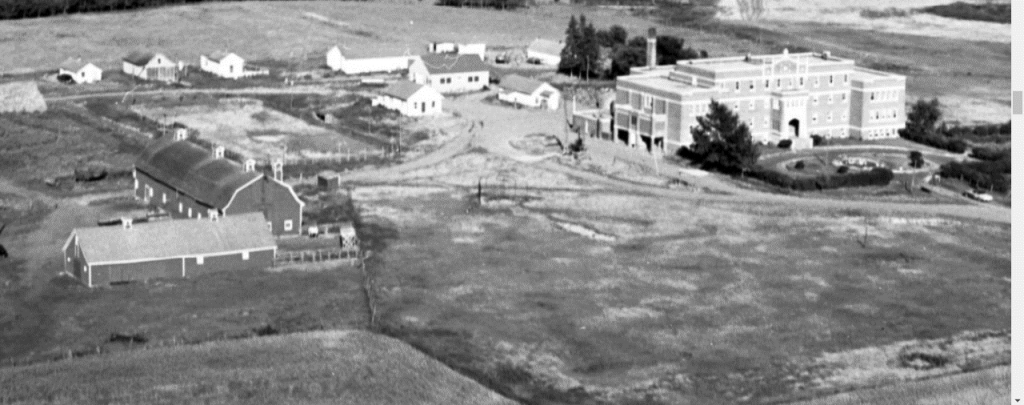
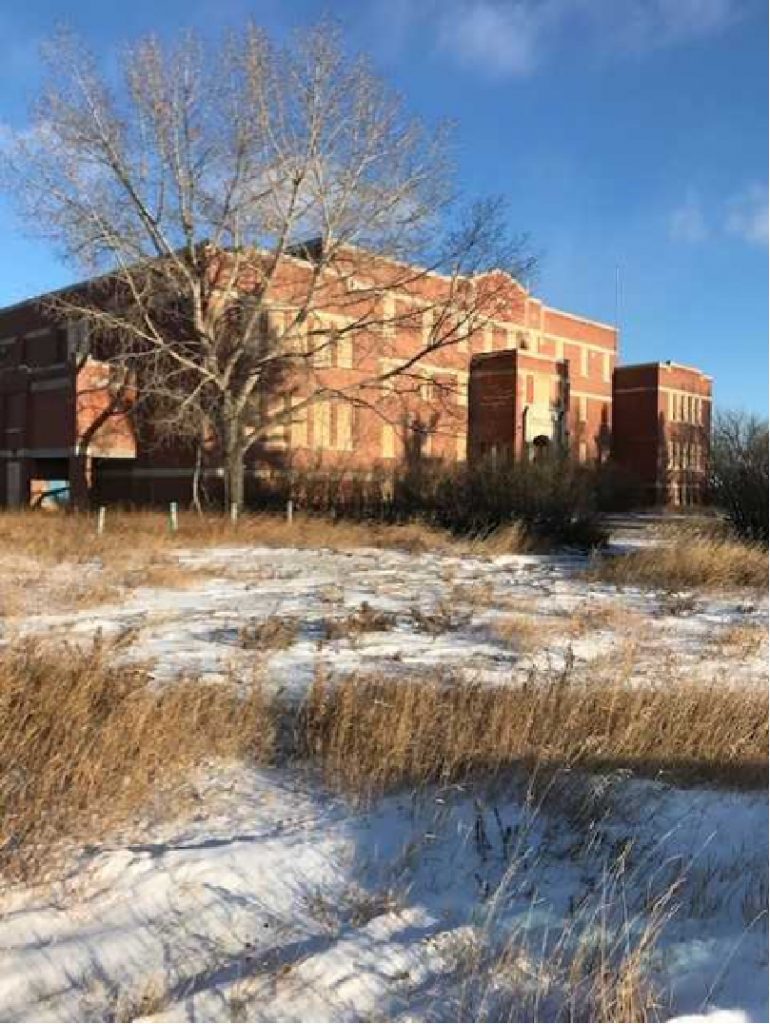
Carleton University published a story about it, titled A Residential School Reclaimed: Transforming Tragedy into Hope.
“I feel very grateful for the whole experience as it has impacted my outlook on architecture and my life,” says Liebe. “It has made me rethink a lot about what is important when it comes to historic architecture in Canada.
“We (the students) were given the opportunity first to learn and then listen to the difficult history of a site,” she says. “We had the space to discuss that with our colleagues, professors, and members of the First Nation, leading us to the final designs. I find it hard to put into words how meaningful the experience was.”
Everyone is invited to the Getting Real About Reconciliation conference. The cost is $20 + GST for members of Heritage Saskatchewan or the Museums Association of Saskatchewan. Non-members pay $35 + GST.
